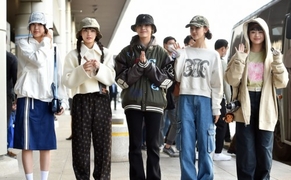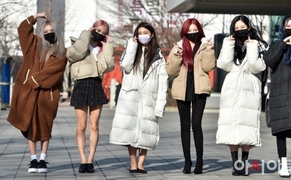 |
| The Korean Confederation of Trade Unions (KCTU), the Public Transport Workers’ Union, and the Construction Industry Federation hold a press conference on the government’s response towards the general strike at the KCTU office in Seoul on Dec. 8, 2022./ Source: Yonhap |
AsiaToday reporter Jeong Min-hoon
The cargo union’s refusal to transport continued for the 15th day. As the government issued an additional executive return-to-work order for the steel and petrochemical industries on Thursday, the Korean Confederation of Trade Unions (KCTU) is losing ground. The main opposition Democratic Party (DP), which has supported the cargo union, accepted the government’s proposal to extend the minimum freight rate policy for three years, and the power struggle between the government and the union is shifting towards the government.
Presided over by Prime Minister Han Duk-soo, an extraordinary Cabinet meeting was held where ministers agreed to issue a return-to-work order concerning steel and petrochemical industries.
In his opening remarks, the prime minister warned that supply disruptions in the steel and petrochemical industries could spill over to other key industries such as automobiles, shipbuilding and semiconductor chipmaking, thus affecting national economic growth. “The situation is too urgent and grave to wait for striking truckers to voluntarily return to work,” Han said. “The large-scale suspension of logistics is likely to lead to production disruptions starting this weekend,” Finance Minister Choo Kyung-ho said in a briefing after the Cabinet meeting. “We will hold them accountable until the end under the principle of strict response according to the law,” Choo said.
In accordance with the government’s additional order, 86 joint investigation teams consisting of the Ministry of Land, Infrastructure and Transport, local government officials, and the police started an on-site investigation of the transportation companies on Thursday. Some 6,000 truckers in the steel sector and some 4,500 people in the petrochemical industry, as well as some 240 transportation companies received the order.
The KCTU is further losing ground as the DP accepted the government’s three-year extension proposal of the safe trucking freight rates system with the government holding to its principle of ‘return without conditions’.
The head of the KCTU has criticized the government’s measures and urged for a dialogue, which is contrary to the remarks made on Dec. 6 at the nationwide general strike. It seems the union is adjusting the tone against the government’s pressure. “We urge the government to stop attacking the KCTU and the cargo union and start dialogue with an open attitude to resolve the current situation,” KCTU chief Yang Kyung-soo said. He also called on President Yoon Suk-yeol to engage in talks.
#KCTU #executive order #strike #truckers #cargo
Copyright by Asiatoday
Most Read
-
1
-
2
-
3
-
4
-
5
-
6
-
7





















